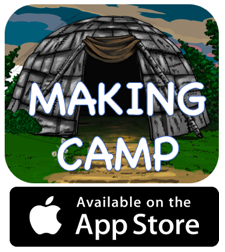I really do like teachers. You know I do. I used to be a teacher, my brother is a teacher and my daughter is a teacher – all at the middle school level. Currently, in our spare time of which we have none, my brother, sister and I all teach graduate courses.
Still, teachers, y’all aren’t perfect. One area where you could use a little improvement to the benefit of your students is your attitude toward business. I’m constantly hearing that STEM is the new big thing concerning schools. That’s good. I love mathematics and technology, I also used to be an engineer. Science – who doesn’t like science?
There is a lot of talk, at least from many of the teachers I know, about entrepreneurship. We want students to get all excited about math and science and computers because they can go and get these great jobs in startups.
“What is wrong with that?”
you ask.
(Thank you for asking.) Not a darn thing.
What is really a problem is the attitude many teachers have towards business (this applies to others in ‘helping’ professions or other sectors not for profit as well) that everyone in business is dishonest.
Don’t think so? I have some experience running a start-up in educational technology. While some teachers are excited to work with us, others act as if we are walking through their school or conference covered in pond scum.
If it was just me who got that reaction, it would make me feel bad but that would not be so much of a concern.
However, it’s not just me. I too often hear teachers make disparaging comments about educational technology in general.
Oh, they don’t know anything about what goes on in the classroom.
This is despite the fact that many of the startups I know were founded by teachers who were extremely concerned about problems they saw in classrooms and needs they felt were not met.
Yes, there are some startups – and initiatives by very large companies as well – that have absolutely no idea about student needs, teacher challenges or curriculum and are just out to make a quick buck. Those start ups usually fail fast, although not always if they happen to have a significant amount of investor funds behind them.
While it’s impossible to be 100% objective about one’s own product, the assumption that data documenting effectiveness of an intervention are completely made up when they come from a company but somehow more objective when published by school district is , frankly, insulting.
The founders of our company, like many others, left good jobs to do what we’re doing because we believe in it. Dennis and I had comfortable careers writing software and we went from that to getting paid far, far less to make educational games. Other companies we know have been founded by teachers with tenure who quit their jobs to try to make something to serve students and teachers.
If there was one thing I could do to increase the number of underrepresented students going into STEM fields, it would be to dissuade them of the idea that these careers are only for people who can knock it out of the park on the first try. They need to understand that the typical path is to struggle in some courses, write buggy software and make lots of mistakes, learn from those mistakes and move on.
If you are really serious about fostering entrepreneurship, there are companies out there, including ours, who would be thrilled to work with you. That could include beta testing software so that your students can learn about the process of going from an idea to a first draft to a finished product. One reason that students can become discouraged from careers in software development is that their own first efforts won’t be anything like they see sold on Amazon. It’s extremely helpful for young people to observe the real struggles that even very experienced developers have.
We – and others – would be happy to come into your classrooms in person or via Skype and talk to your students about careers in software development, animation, etc.
We also would be very happy to get input from you and your students on what type of educational software you would like to see and what improvements you’d like to see in our games. Some teachers have used this as a language arts activity where students wrote letters and sent them to us. I thought this was a brilliant idea because from my own experience teaching middle school, students take assignments more seriously when they’re going somewhere other than just a pile on the teacher’s desk to get a check mark as having been handed in.
My point – and you may by now have despaired of me having one – is that startups are not the enemy. I can’t deny that there are some educational technology companies out there who just want to make a quick buck and are making worthless apps. That hasn’t been my experience with the majority of the field, though.
You can even download an iPad app from us here for free ! Teaches multiplication, division and Ojibwe history.
To encourage your students to enter STEM fields, why not invite people from those fields in your classrooms and work with them as collaborators? We can really be all right – honest!



